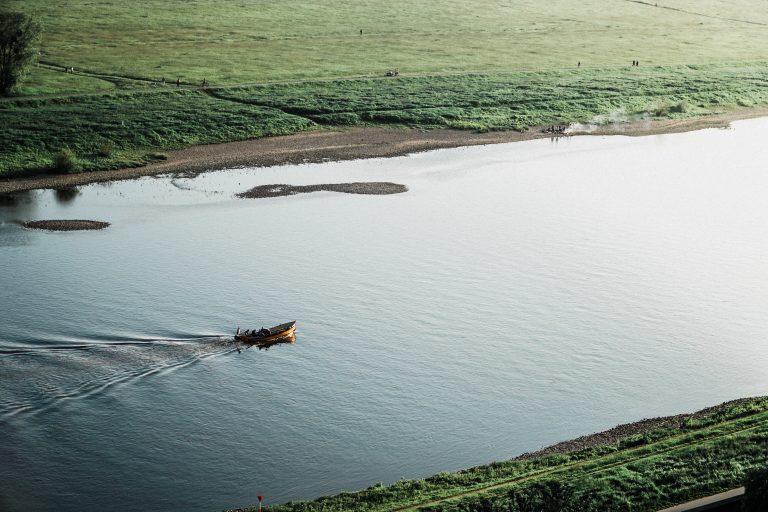The Czech Republic and Germany have concluded an intergovernmental agreement on the navigability of the Elbe. The expansion of the Elbe is to ensure navigation on 340 days a year from 2030. Germany wants to ensure a navigable depth of 140 cm, the Czech Republic 230 cm. To achieve this, dams would have to be built in the Czech Republic. German transport Minister Scheuer and his Czech counterpart Karel Havlíček signed the agreement. The Elbe is already subject to periods of drought, which makes freight transport difficult. Climate change will lead to prolonged periods of low water. An expansion of the Elbe would therefore have little consequences for freight transport, but cause massive damage to the Elbe ecosystem.
A second project is to lead to a Danube-Oder-Elbe canal. The canal would create another connection from the Black Sea to the North and Baltic Seas. However, several hundred kilometres of artificial waterways would have to be built and 70 barrages. In addition to the canal construction, which could only be accomplished with major interventions in the landscape, there would also be major impacts on the Oder, Germany’s last relatively natural river. To make navigation possible, the Oder would have to be expanded over a large area. Wetlands and floodplains and habitats for beavers and birds would be lost
Sven Giegold, spokesperson for Bündnis 90/Die Grünen in the European Parliament, explains:
“The Elbe and the Oder are part of Europe’s natural heritage. The expansion of the Elbe and Oder pursued by Transport Minister Scheuer will irretrievably destroy further precious ecosystems. In view of floods and droughts, the expansion of the rivers is out of time. Instead of flood protection and renaturation, navigation channels are being built for freight transport, which will soon no longer be possible due to climate change. The flood disaster teaches us not to destroy our rivers. We must strengthen their natural water retention capacity.
The expansion of the Elbe river contradicts European law. With the EU Water Framework Directive, Europe agreed in 2000 to bring all rivers into a good natural condition. Endangering precious ecosystems exposes the Elbe river and its inhabitants to unnecessary risks. Therefore, no EU funds may be used for these projects. EU money is completely out of place here and contradicts the European Green Deal, which established the “do no harm” principle.
Rivers that are as close to nature as possible reduce the dangers of climate change and flooding. I appeal to the EU Commission to finally take the implementation of the Water Framework Directive seriously.”
Mikuláš Peksa, MEP of the Czech Pirate Party declares:
“Europe is increasingly struggling with both drought and swift intense flooding. The situation is unrelenting and insensitive intervention in the natural riverbeds will certainly not help. We have already changed the natural equilibrium too much, and that is why we are standing right in the middle of a climate crisis. Further changes to the natural flow of rivers will only lead to disasters, like floodings we have seen during the last weeks in many areas of Europe.”

